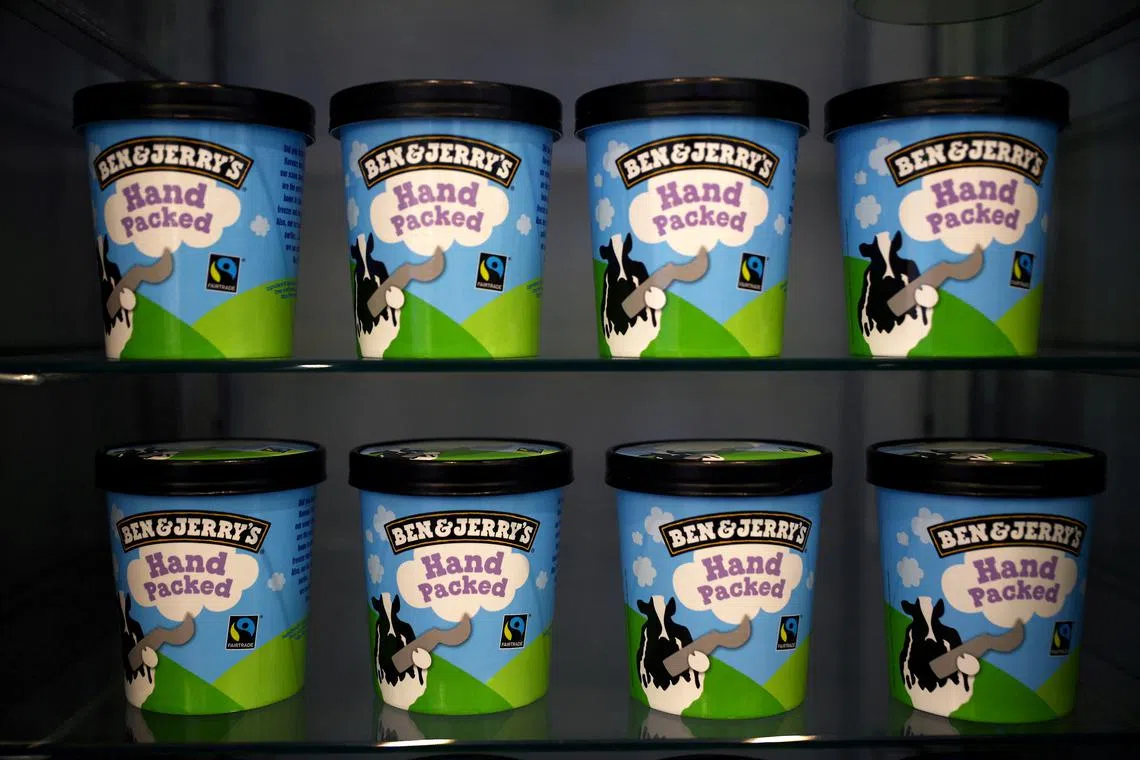For subscribers
Ben & Jerry’s v Unilever is the end of corporate do-gooderism
When the conglomerate bought the progressive ice-cream maker, its social stances were a selling point, and then tastes changed
Sign up now: Get ST's newsletters delivered to your inbox

Ben & Jerry’s independent board sued Unilever last week, alleging that the parent company broke an agreement by by seeking to muzzle its Gaza stance.
PHOTO: REUTERS
When Unilever agreed to buy Ben & Jerry’s in 2000, the consumer giant was looking to acquire not just the small Vermont company’s ice-cream operation but also its quirky, do-gooder ethos, which Unilever hoped to inject into its larger corporate culture.
For two decades, it was a happy union. Ben & Jerry’s grew into a €1 billion (S$1.42 billion) brand and got to preserve its social mission and independence, while Unilever capitalised on its position as the poster child for the corporate doing-well-by-doing-good movement.


